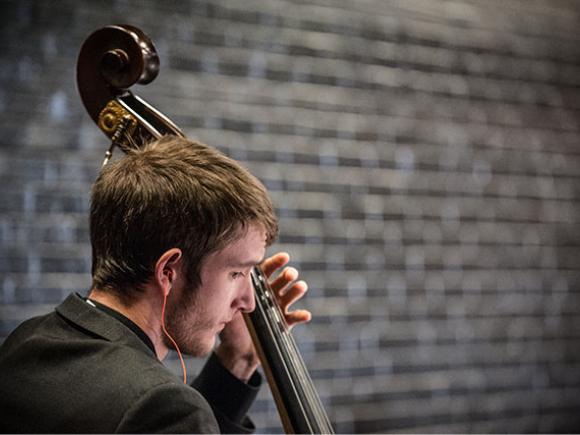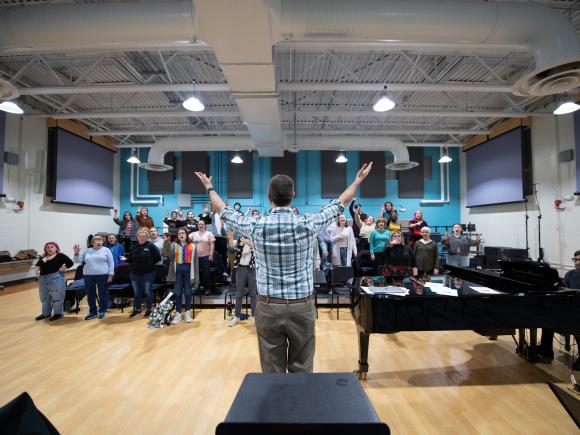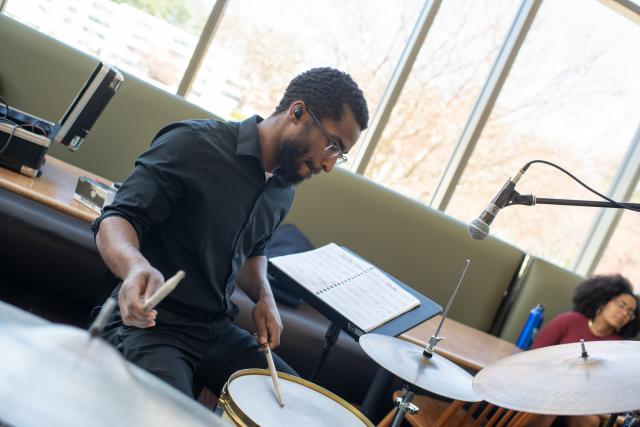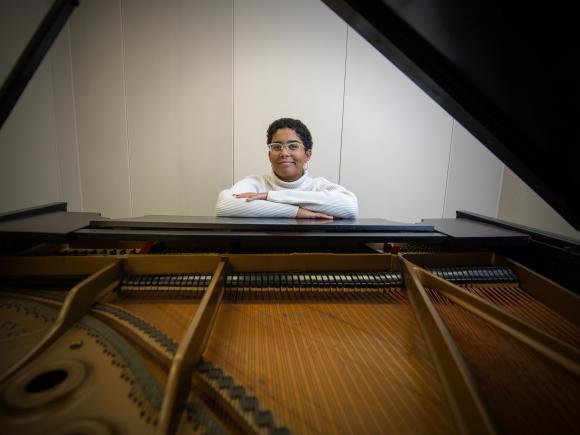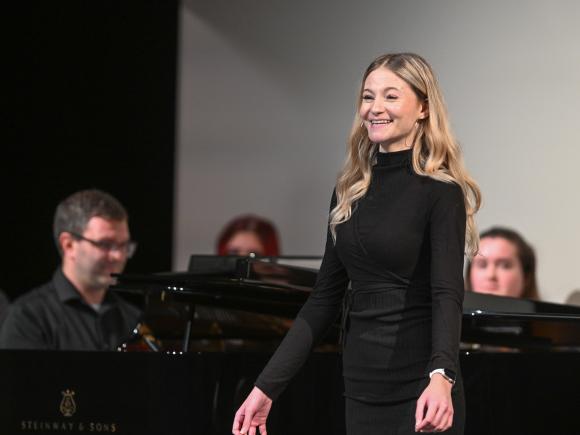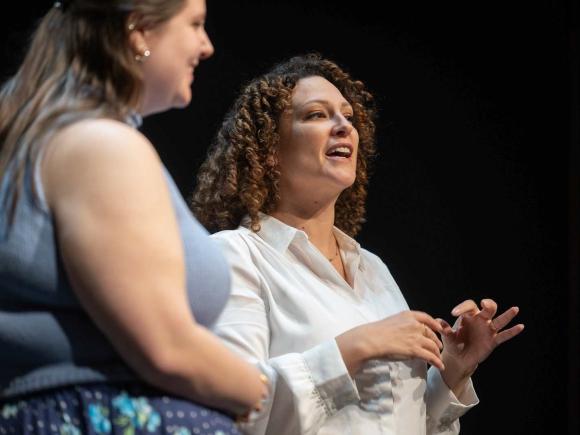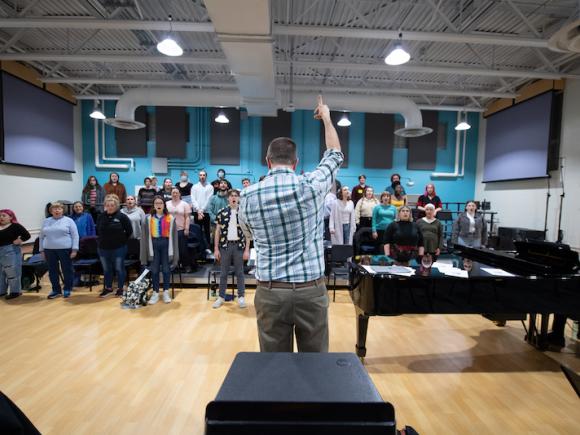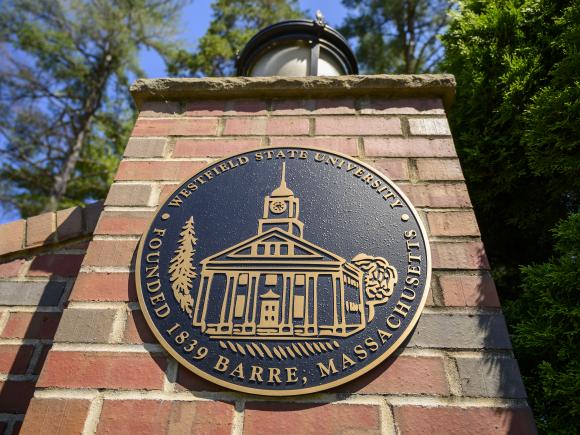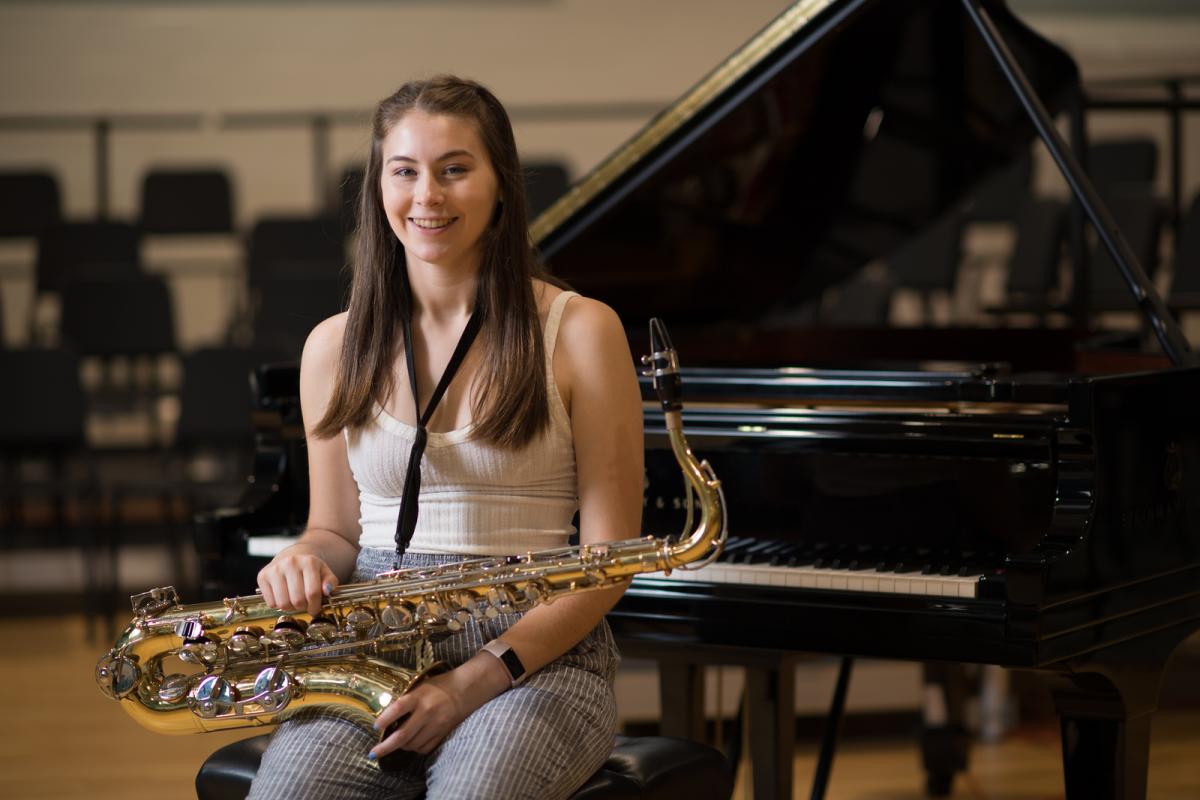
The Bachelor of Arts in Music program aims to give students a broad education within a liberal arts setting, featuring various course options and the freedom to explore many areas of study within the discipline. With guidance from faculty and a focus on student interests, this program promotes individualized learning and creative development. You’ll grow and develop a strong set of musical and professional skills to help you establish your career and thrive within the musical community.
While exploration is encouraged, students entering with clearly defined musical goals may choose a specific area of focus within music such as Performance, Composition, History, Management, Technology, Production, and Jazz Studies. You’ll work with your faculty advisors to create a unique program of study that will prepare you for the next step in your career path. An audition is part of the application process, helping to ensure that applicants have the musical skills necessary to succeed in this field.
Students wishing to teach in the public schools may choose our comprehensive, accredited music education curriculum that leads to the initial licensure required to begin a career as a music educator.
Students interested in pursuing a career as a Board Certified Music Therapist can prepare for an engaging career using the power of music to improve clients’ lives.
